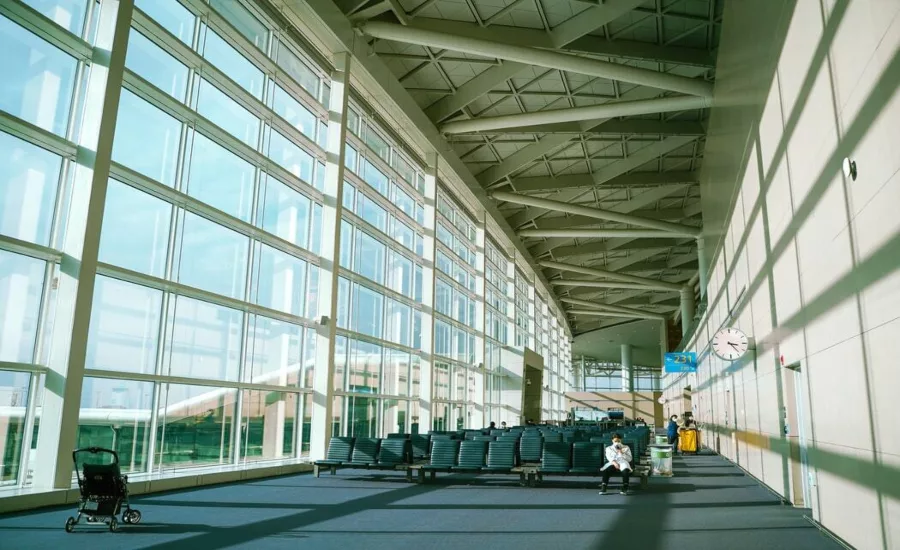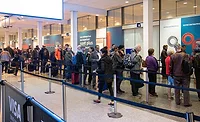TSA extends face mask requirement at airports and throughout the transportation network

The Transportation Security Administration (TSA) is extending the face mask requirement for individuals across all transportation networks throughout the United States, including at airports, onboard commercial aircraft, on over-the-road buses, and on commuter bus and rail systems through September 13.
TSA’s initial face mask requirement went into effect on February 1 with an expiration date of May 11.
“The federal mask requirement throughout the transportation system seeks to minimize the spread of COVID-19 on public transportation,” said Darby LaJoye, the Senior Official Performing the Duties of the TSA Administrator. “Right now, about half of all adults have at least one vaccination shot and masks remain an important tool in defeating this pandemic. We will continue to work closely with the Centers for Disease Control and Prevention (CDC) to evaluate the need for these directives and recognize the significant level of compliance thus far.”
The CDC recently announced that fully vaccinated travelers with an FDA-authorized vaccine can travel safely within the U.S., but the CDC guidelines still require individuals to wear a face mask, socially distance, and wash their hands or use hand sanitizer. The extension of the face mask requirement is consistent with this most recent CDC guidance. TSA encourages all commuters, and airline and bus travelers, including people considering international travel, to stay up to date with any changes to these requirements by checking the TSA and CDC websites prior to taking their trip.
While this announcement extends the date of enforcement, all other aspects of the requirement remain unchanged, including exemptions and civil penalties. Exemptions to the face mask requirement for travelers under the age of 2 years old and those with certain disabilities will continue. The existing civil penalty fine structure will also remain in place which starts at $250 and rises to $1,500 for repeat offenders who violate this face mask requirement.
Travelers who have not flown since last year may notice various changes already implemented at airport screening checkpoints nationwide.
At TSA checkpoints, travelers will continue to see all security screening officers wearing face masks and gloves. Acrylic barriers remain in place at most airports while new credential authentication technology and computed tomography equipment at hundreds of checkpoints greatly reduce the need for physical contact between our officers and the traveling public.
The TSA screening officer at the travel document checker (TDC) station will request that travelers temporarily lower their face mask to verify their identity. Those who approach the TDC without a face mask will be asked to obtain one to proceed. Passengers who refuse to wear a face mask will not be permitted to enter the secure area of the airport, which includes the terminal and gate area. One hand sanitizer container up to 12 oz. per person continues to be temporarily allowed in carry-on bags while all other liquid, gels, and aerosols must meet the 3-1-1 rule.
Travelers with questions regarding airport security screening procedures may send a message via Facebook or Twitter to @AskTSA for live assistance from 8 a.m. to 8 p.m. ET on weekdays or 9 a.m. to 7 p.m. ET on weekends/holidays. Individuals who require screening assistance due to a disability, medical condition or other special circumstance may contact TSA Cares at least 72 hours in advance of their flight by calling (855) 787-2227.
For more information about the Security Directives and Emergency Amendment, visit tsa.gov/sd-and-ea. For additional information about TSA procedures during the COVID-19 pandemic as part of our “Stay Healthy. Stay Secure.” public awareness campaign, visit tsa.gov/coronavirus.
Looking for a reprint of this article?
From high-res PDFs to custom plaques, order your copy today!





